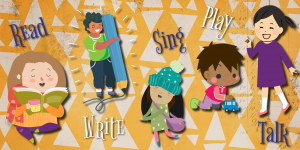
Children begin asking questions before they can even speak! The first time a baby may ask a parent, “What is that?” could be by pointing at the object or simply staring at the object and babbling.
Asking questions and receiving pertinent answers is all part of your child’s cognitive development. Asking real questions (not to be confused with the “why, why, why’s” that you hear during the toddler phase) helps your child to understand the world around them.
One study illustrated that if children only received attention when they asked a question and did not receive an answer to their question, they continued to seek answers.
Many parents find the onslaught of questions to be tiring. Remember, it is ok to not have all of the answers and to admit as much to your child.
You can always say something like, “I don’t know the answer now, but we can look it up together later.” It won’t stop the mountain of questions, but it is great to give your child some agency in finding answers. If you do have an answer that you are comfortable telling your child, please share it with them! They are listening.
Here are some questions to expect from your child as they grow:
Ages 1–2
- Rising tone of voice
- Example: “Apple?” pitched higher at the end of the word
- “What’s that?”
- Pointing at objects they are curious about
Ages 2–3
- Asks one-word “why?” questions
- Asks “what”, “where”, “when”, “how”, and “whose” questions
- Asks “is” questions
Ages 3–4
- “Do you want to…?”
- “Are we going to…?”
- “Can you…?”
Sources:
- Curious children ask 73 questions each day - many of which parents can't answer, says study
- Question Answering and Asking Milestones
-Megan, Children’s Team, Kirk-Bear Canyon Library
 Read, Write, Talk, Sing, Play!
Read, Write, Talk, Sing, Play!
The day children are born, their brains are primed for language. Talking with your child about anything and everything helps them build oral language skills, which are critical to early literacy!
Read more about early literacy and how you can make a difference in your child's life.

